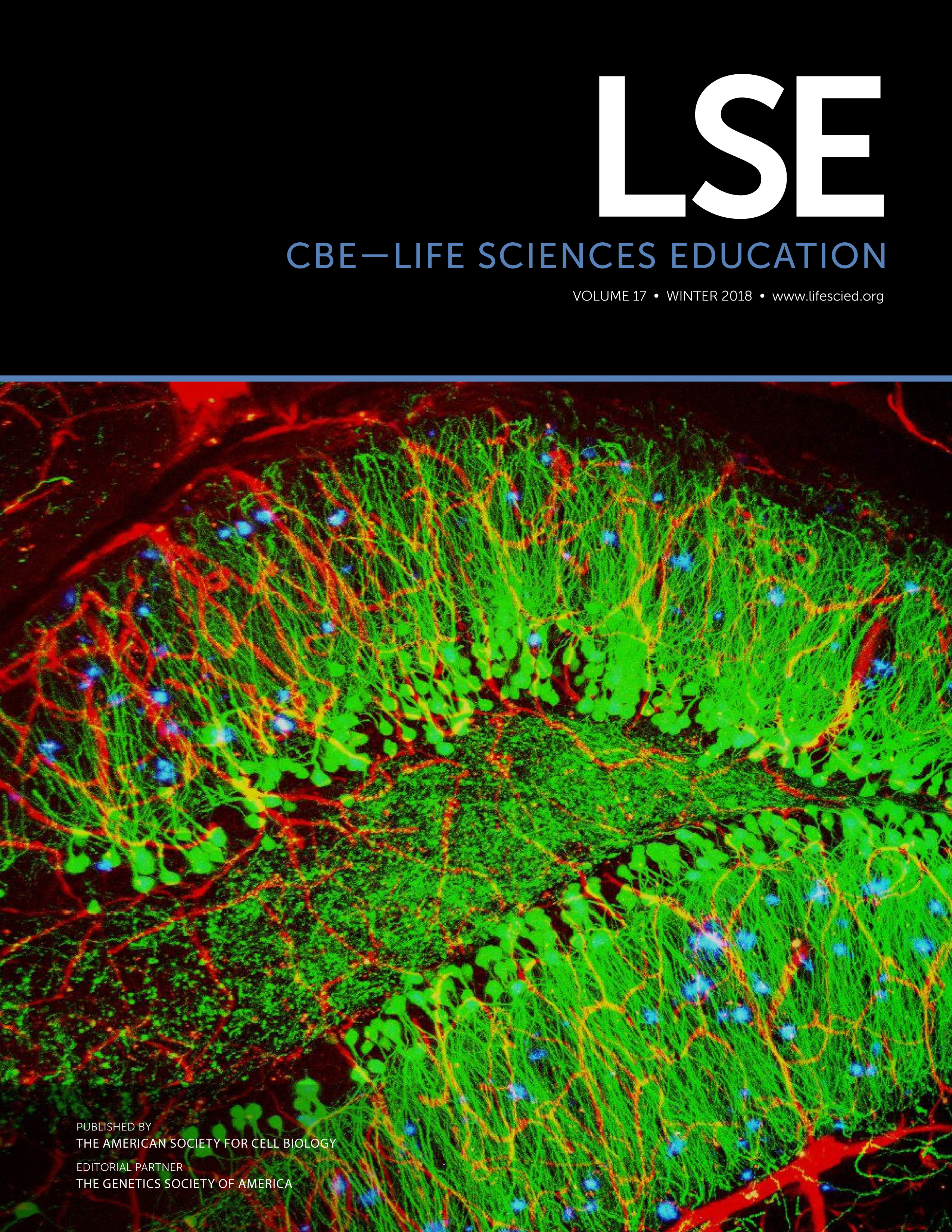The Learning Loss Effect in Genetics: What Ideas Do Students Retain or Lose after Instruction?
Abstract
Modern genetics is a relatively new domain, but it is increasingly important for students to have a firm grasp on the content, because genetic technologies are becoming more commonplace. In a previous study, we used the Learning Progression-based Assessment of Modern Genetics to assess high school students’ knowledge of genetics concepts after an intensive inquiry-based genetics instructional period. Given that this type of intensive inquiry-based instruction is unique, we are now investigating how students’ knowledge of genetics changes after instruction (i.e., learning loss effect). Using a six-measure longitudinal design, we found that students retained significant gains in five of the 12 constructs 18 months after instruction; scores were not significantly different than the pretest in seven of the constructs. Through a nonparametric analysis, we found that students are better able to retain mechanistic explanations in genetics than memorized details. This study uses an learning progression framework that examines what happens to genetics knowledge over an extended period of time after instruction and indicates that classroom time is better spent helping students construct mechanistic explanations of genetic phenomena as opposed to memorizing terminology.



